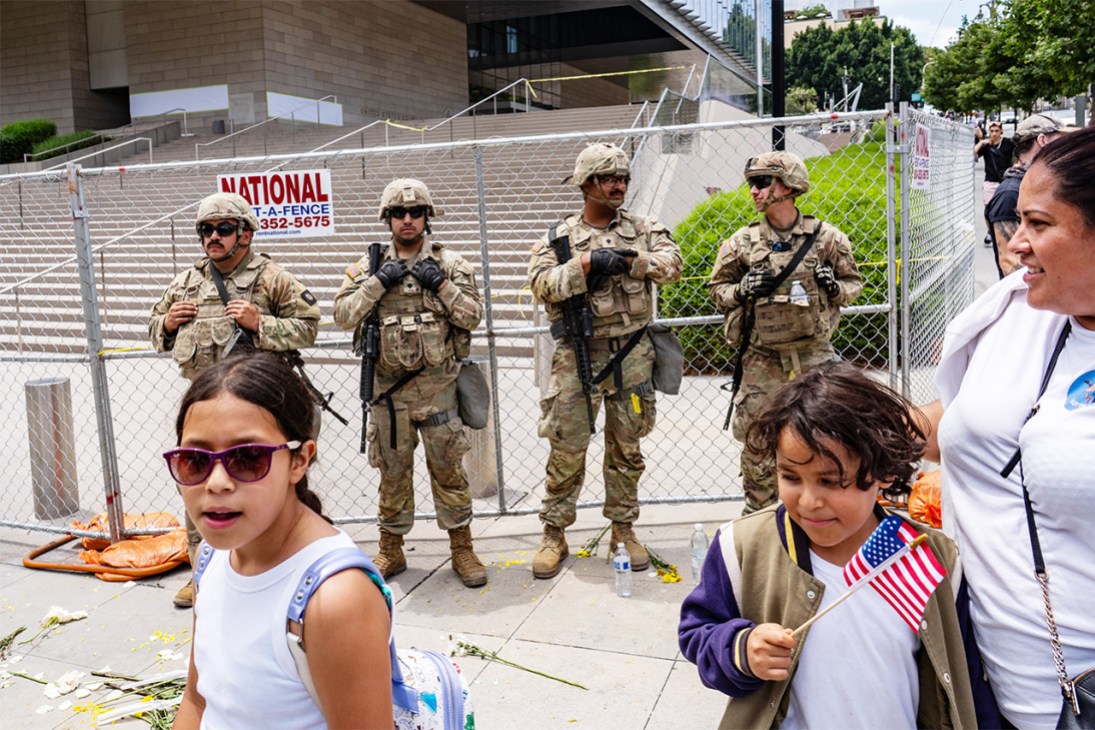US mayors have a chance to keep the White House at bay – but they must be more vocal
The eternal internal conflict of the US is often delineated as between the federal government and the states. “States’ rights” regularly serve as a battle cry for the kind of conservatives – including, up until the 1970s or so, conservative Democrats – who wish the US Civil War had gone the other way.
Under the second administration of Donald Trump, there has been some antagonism between Washington and the states – most notably California, whose governor, Gavin Newsom, has recently taken to winding up Trump with social-media posts echoing the president’s choleric all-caps fulminating. But Trump’s ire has been more forcefully directed at America’s big cities. The National Guard has been deployed in Los Angeles and Washington; Memphis is next. Trump has also inveighed against, among others, Chicago (“a disaster”), Milwaukee (“horrible”), Oakland (“hell”) and Baltimore (“a rodent-infested mess”). Most cities upon which Trump has fixated are governed not merely by Democratic mayors but black Democratic mayors.
Quinton Lucas, the mayor of Kansas City, recently spoke to Monocle Radio’s The Foreign Desk about how he is preparing for the storm – when and if it comes. “Trying to predict what Donald Trump will do is like watching The Madness Of King George,” says Lucas. “That’s what we’re witnessing in the US now.” As Lucas sees it, the way forward for actually or potentially beleaguered city halls is to control what they can and not worry too much about what they cannot. He speaks of making proactive outreach to federal agencies that can help with crime, drug and gun problems, such as the FBI, DEA and ATF. The best defence against federal meddling is adherence to the maxim that all politics is local: citizens who can see and feel improvements are more likely to rally around their mayors.

Stoking fear of the big city is not a new development in American politics. In the US as elsewhere, the political divide is substantially between the metropolis, which tends liberal and cosmopolitan, and the small town or rural province, which are often more conservative and monocultural. Kansas City has had one Republican mayor since 1930; Missouri, in which Kansas City sits, has delivered its electoral college votes to Donald Trump three times. In the same episode of The Foreign Desk, historian Rick Perlstein notes that Trump has succeeded by amplifying American manias already extant. Sending National Guards and ICE agents to cities that might not need or want them is in keeping with the pattern. “These beefy, thuggish men with masks are guys from rural areas who grew up distrusting cities, sometimes for racist reasons, and during the Maga era have been drowned in propaganda that cities are – to use Trump’s term – hellholes,” says Perlstein.
America’s metropolises are not hellholes – and violent crime is in general decline. The task that awaits the country’s mayors is not merely maintaining that but communicating it, while waiting for Trump’s whims to run up against reality. “The president takes more interest in being a showman and an entertainer than he does in substance,” says Lucas. “Will he get to every Democratic city? I don’t think that there are enough National Guards.”
Andrew Mueller is Monocle’s contributing editor. For more on Kansas City’s revitalisation of its central business district, click here.



